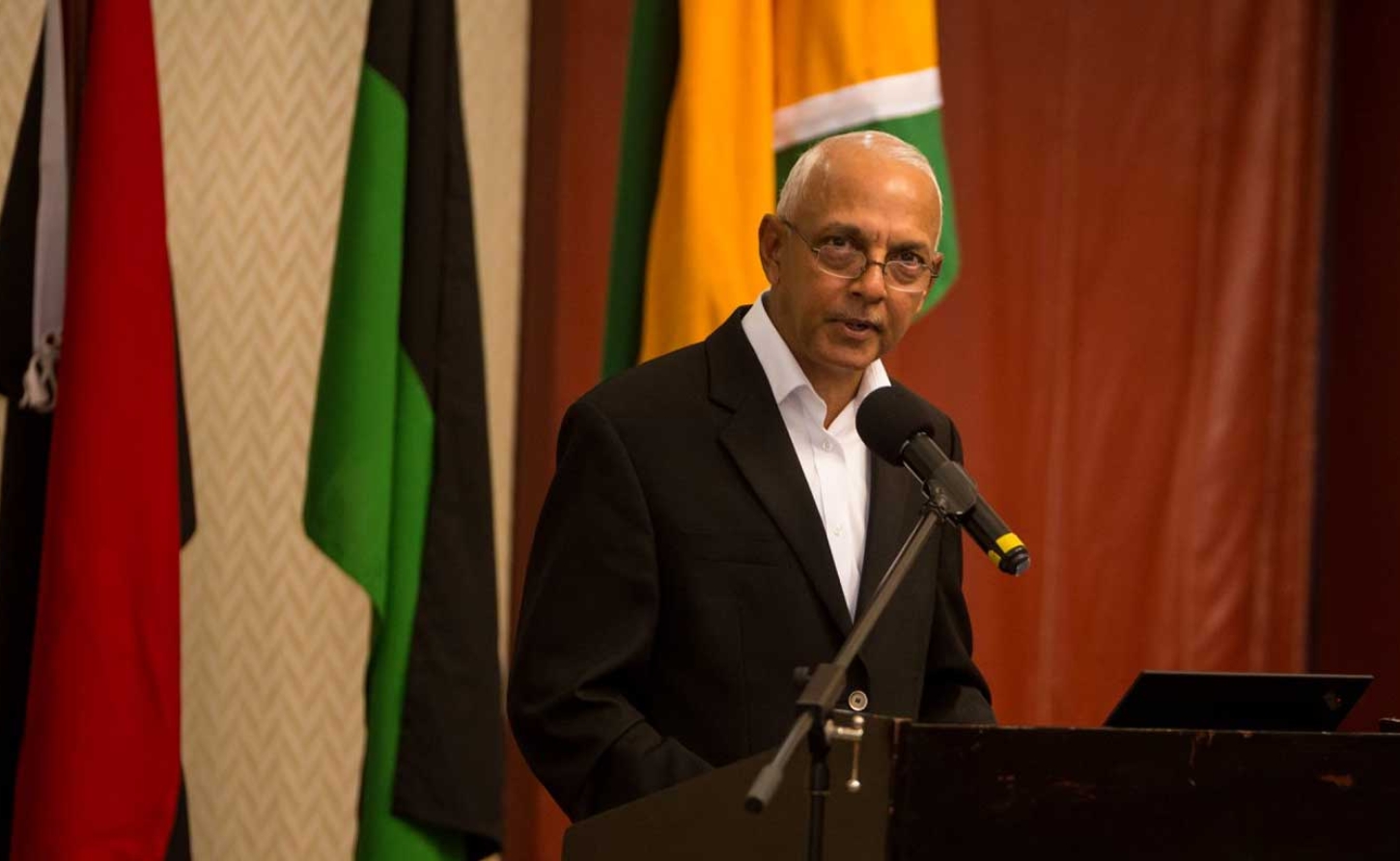GUYANA | Ronald Bulkan Abandons PNCR Ship as Unity Dreams Crumble

GEORGETOWN, Guyana, June 19, 2025 - The hemorrhaging of Guyana's main opposition party reached a critical juncture this week as Ronald Bulkan, a former Communities Minister and two-decade stalwart of the People's National Congress, dramatically severed ties with his political home to join Amanza Walton-Desir's nascent "Forward Guyana" movement.
In a letter that reads less like a resignation and more like a political obituary, Bulkan delivered a withering assessment of his former party's prospects, declaring that the PNCR "as currently situated is highly unlikely to dislodge the PPP from its current perch" ahead of the crucial September 1 general elections.
The businessman-turned-politician's defection represents more than just another departure from the increasingly fractured opposition ranks—it signals the complete collapse of what many had hoped would be a unified challenge to President Irfaan Ali's oil-wealthy People's Progressive Party/Civic (PPP/C).
The Unraveling of Opposition Unity
Bulkan's decision was precipitated by what he characterizes as "the apparent collapse of a unified slate, led by a consensus candidate" to contest the elections. His assessment is brutally frank: such a unity team "would have guaranteed wresting the presidency" from what he colorfully describes as "the grasping, greedy, and corrupt hands of the PPP."
The former minister's frustration is palpable as he watches a string of high-profile departures from the PNC, including recent resignations by MPs Geeta Chandan-Edmonds and Region Four Chairman Daniel Seeram, who not only quit the party but crossed the floor to join the ruling PPP. The timing couldn't be worse for opposition leader Aubrey Norton, whose leadership has come under increasing scrutiny.
A Scathing Indictment
Bulkan's letter reads like a charge sheet against both his former party and the current government. He reserves particular venom for the PPP, accusing it of ruling "with absolute disdain for the National Assembly, local government organs, every public institution, the Police Force (which is now a literal arm of the PPP), civil society, and you name it."
This assessment aligns with growing concerns about democratic backsliding in Guyana. International observers have noted that "the harassment and intimidation of journalists, often by the government, has affected press freedom in recent years" and that "crime, police violence and corruption, and discrimination against Indigenous and LGBT+ people remain significant problems."
The former minister's critique gains credibility from his extensive experience in government. As Minister of Communities under the APNU+AFC coalition from 2015-2020, Bulkan oversaw the merger of housing, water, and local government functions, giving him intimate knowledge of state institutions he now claims are compromised.
Enter the Disruptor
Bulkan's new political home represents perhaps the most intriguing development in Guyanese politics since the oil boom began. Amanza Walton-Desir's dramatic exit from the PNC just days earlier, followed by her emotional launch of "Forward Guyana," has sent shockwaves through the political establishment. The 45-year-old attorney and former Shadow Minister of Foreign Affairs shed visible tears as she announced her resignation, citing being "sidelined, undervalued, and silenced" within the PNC leadership structure.
Walton-Desir's credentials are impressive: a graduate with distinction from the International Maritime Law Institute, former General Counsel of the Guyana Civil Aviation Authority, and a rising star who served as special assistant to the Prime Minister from 2005 to 2010. More importantly, she represents something increasingly rare in Guyanese politics—a figure capable of transcending traditional ethnic and party boundaries.
The symbolic power of this political pairing should not be underestimated. Bulkan's presence at Walton-Desir's press conference, alongside other former APNU+AFC officials like Mark Archer, signals a potential brain drain from the traditional opposition that could reshape the electoral landscape.
The Bigger Picture
Bulkan's defection occurs against the backdrop of Guyana's transformation into the world's fastest-growing economy thanks to offshore oil discoveries. The PPP/C government has leveraged this oil wealth to fund "broad government spending on infrastructure and social programs," creating a formidable electoral advantage that opposition parties have struggled to counter.
The former minister's decision to throw his lot in with an untested political movement rather than remain in the established opposition speaks volumes about the depth of the crisis facing the PNC. Polling data suggests that "a significant percentage of voters are not pleased with the available options and appealing for entrance of new parties," creating an opening that Forward Guyana hopes to exploit.
The stakes could hardly be higher. With elections scheduled for September 1 and Nomination Day set for July 14, time is running short for any political realignment. Yet Bulkan's calculated gamble suggests he believes the traditional opposition is beyond redemption, making a fresh start not just preferable but essential.
The Path Forward
As Guyana hurtles toward what promises to be a pivotal election, Bulkan's defection represents more than just another political resignation—it's a damning indictment of an opposition that appears to have lost its way. His warning that failure to unite would hand the PPP another victory rings increasingly prophetic as the opposition fragments rather than consolidates.
The question now is whether Forward Guyana can capitalize on this disaffection and Walton-Desir's promise to fight "for the poor, the single mother, the frustrated youth, the underpaid teacher, the nurse, the doctor, and the struggling businessperson" to mount a credible challenge. Or whether Bulkan has simply traded one political wilderness for another.
What remains clear is that his decision to abandon a party he served for "over two decades" in favor of an upstart movement signals that Guyana's political landscape is shifting in ways that traditional players ignore at their peril. The oil boom may have enriched the country, but it has also exposed the poverty of political imagination that has long plagued its opposition.
-30-
